Meeting our customer’s needs is at the core of METRO’s business strategy. We aim to provide consumers with products and services that meet their expectations and we work toward a more responsible supply chain.
Our ambition is to implement responsible practices within our supply chain to offer our customers products that respect workers and the environment. This long-term task requires continuous issue monitoring, close collaboration with our suppliers and rigorous implementation programs.
Objectives
For information on our key performance indicators, see our 2022-2026 Corporate Responsibility Plan

Our ambition is to implement responsible practices within our supply chain to offer our customers products that respect workers and the environment. This long-term task requires continuous issue monitoring, close collaboration with our suppliers and rigorous implementation programs.
To learn more
Responsible procurement is a fundamental aspect of our business.
We also know how important it is to our customers. We want to work with suppliers that share our commitment to responsible practices and act on this commitment. To guide us, we have developed several programs and policies that are science-based, rigorous and in line with industry best practices; they are a core part of our ongoing business operations. Click here to view them.
We believe in fostering lasting partnerships based on transparency and continuous improvement. In 2023, we partnered with SupplyShift, a cloud-based platform supported by a team of ESG experts, to collect and analyze data from our suppliers to assess their performance against all the principles of our Supplier Code of Conduct for responsible procurement, including Respect for workers. This approach will allow us to improve our reporting and better identify risks and opportunities across our supply chain
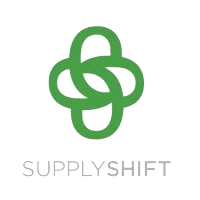
To learn more about our local purchasing initiatives, visit the Communities page
We prioritize animal health and welfare by ensuring our suppliers adhere to the Codes of Practice for the Care and Handling of Farm Animals developed by the National Farm Animal Care Council (NFACC) or an equivalent standard.
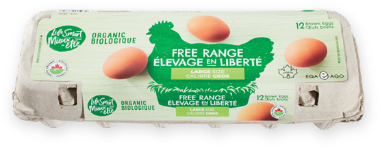
As of 2023, cage-free eggs were available in 93% of our stores. All whole eggs sold under our Life Smart private brand are organic and cage-free, including 100% of brown eggs.
The average conversion rate of our Canadian pork suppliers to gestation crate-free operations is 67%, which represents the majority of our purchases. We are closely monitoring this transition with the goal of reaching 100% by 2029, as per our suppliers’ commitment.

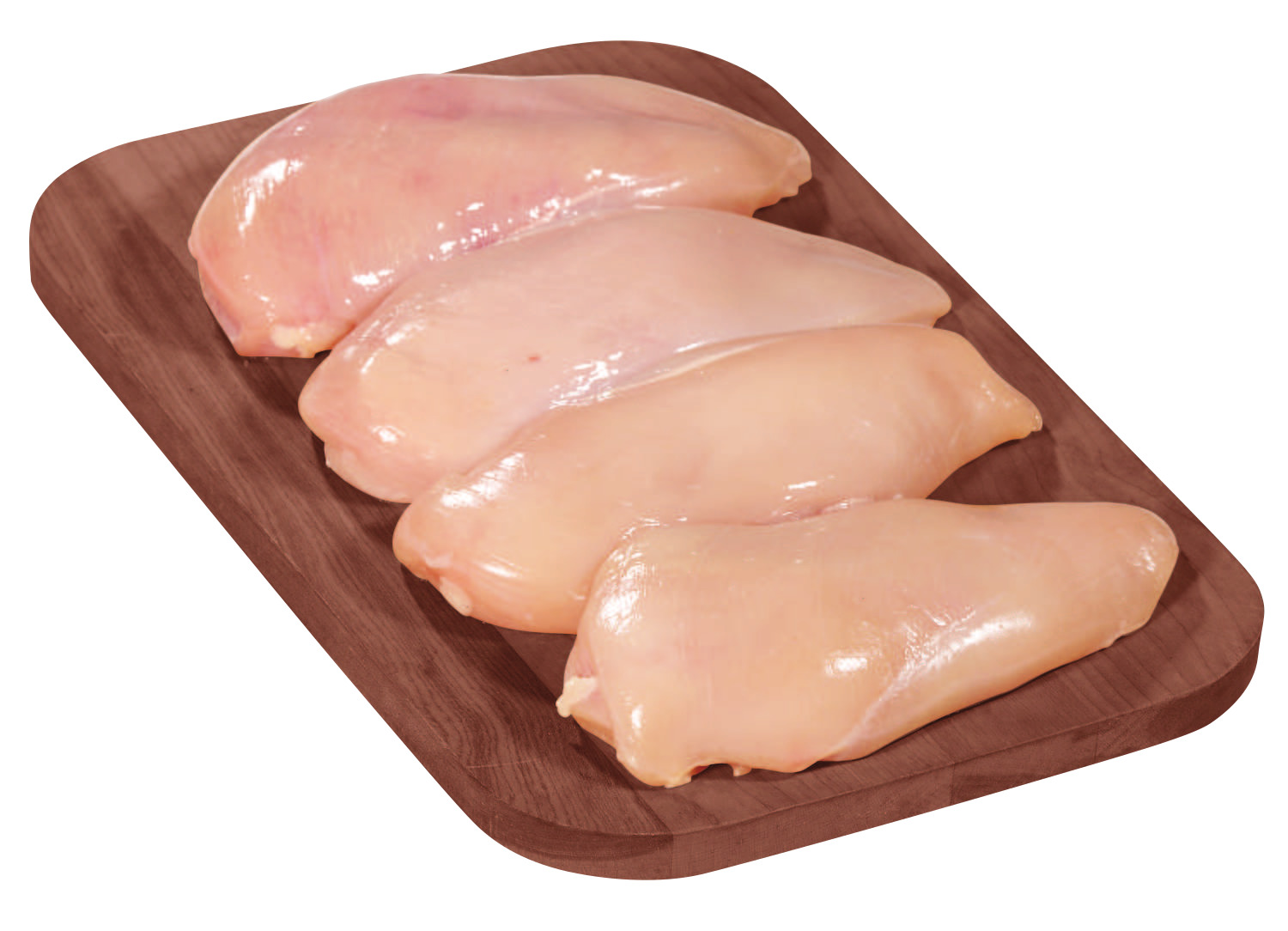
In line with the higher welfare standards of the Better Chicken Commitment, 100% of the chicken we purchase from producers and slaughterhouses is sourced from farms that meet NFACC’s stocking density requirement, and 62.5% is rendered insensible through controlled atmosphere stunning.
For more details about METRO’S commitments, please read our Animal Welfare Statement.
METRO has been a proud member of the Canadian Roundtable for Sustainable Beef (CRSB) since 2016 and as such, supports a commitment to the environmental, social, and economic sustainability of the Canadian beef industry.
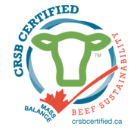
In 2024, Metro Ontario has expanded its beef sustainability sourcing across its Platinum Grill beef products with the CRSB Certified Mass Balance mark available in all 131 stores. This means, Metro’s Platinum Grill® supports the advancement of farming and ranching practices by sourcing at least 30% of our beef from farms and ranches that meet Canadian Roundtable for Sustainable Beef standards.
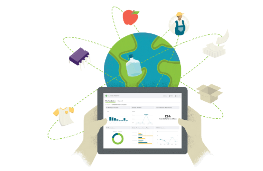
Because beef production is a leading cause of deforestation worldwide, we want to avoid products from areas with a high risk of deforestation. Our primary sources of beef are Canada and the United States and, in 2023, we documented the origin of 96% of the beef used in our private brands and perishable products, and found that none of it comes from high-risk areas.
For the first time in 2023, METRO disclosed its forest-related actions to CDP Forests, underscoring our commitment to sustainability and transparency in addressing deforestation. For more details, please refer to METRO’s CDP Forests declaration.
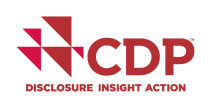
Ocean health and the preservation of natural resources are vital. At METRO, we know that the fishing and aquaculture industries face challenges that concern the sustainability of fish and seafood stocks, the protection of biodiversity and ecosystems, as well as working conditions. This is why we have chosen to support good procurement practices in our fish and seafood department.
Our Sustainable Fisheries and Aquaculture Policy (PDF) covers fresh, frozen and canned fish and seafood. It provides a framework for our sourcing practices and is based on five principles that foster responsible procurement:
Healthy species
Responsible operating methods
Product traceability
Respect for workers
Socioeconomic development
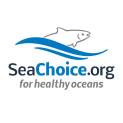
Product traceability is at the heart of our approach. This is in part why SeaChoice, a Canadian science-based seafood watchdog, rated METRO again this year first among its peers. In 2023, we obtained traceability of more than 98% of our purchases.
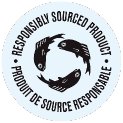
We continue to include our “Responsibly sourced product” label on our private brands’ products to promote the principles of our policy to our customers.
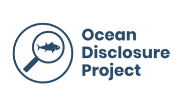
In 2023, to reinforce transparency and accountability in our sourcing practices, we entered into a new partnership with Ocean Disclosure Project (ODP), providing complete traceability for all our fish and seafood on our ODP profile.
For more details on our achievements, see the 2023 Corporate Responsibility Report (PDF)
In 2023, we released our first Responsible Cosmetics Statement, which outlines our approach for private brand cosmetics. Responsible cosmetics, as we define them, are products for which the environmental and social dimensions, including human health, ethics and animal welfare considerations, have been taken into account to minimize the impacts associated with the ingredients that make up the product and its packaging.
Our ambition is to support our customers in their daily actions to care for their health and well-being by offering products that meet their aspirations and nutritional needs and providing professional services to help them take concrete actions for their health. We intend to continue to play an active role in supporting public health through our network of neighborhood stores and pharmacies.
Objectives
Product offers
Professional services
For information on our key performance indicators, see our 2022-2026 Corporate Responsibility Plan

Our ambition is to support our customers in their daily actions to care for their health and well-being by offering products that meet their aspirations and nutritional needs and providing professional services to help them take concrete actions for their health. We intend to continue to play an active role in supporting public health through our network of neighborhood stores and pharmacies.
To learn more
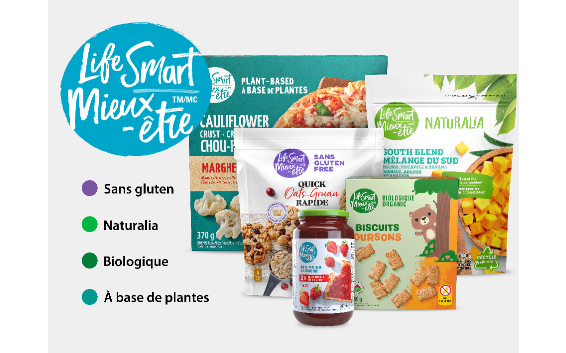
For several years, METRO has been working to offer more products promoting healthy eating in its banners. In 2023, we saw developments primarily in ingredient-based products under the Life Smart Organic brand, such as eggs, beef cuts and fish fillets. These offerings grew by 10% this year compared to 2022.
In January 2021, Metro launched in Québec and Ontario the My Health my Choices program, a tool that helps customers find products suited to their lifestyles, values and health needs.
More than 7,800 products – found in-store, online and on the My Metro app – display one or more of the program attributes, such as organic, gluten-free, vegetarian and no sugar added. We added four new attributes in 2023: Cardio Focus, Digestion Focus, Bone Focus and Appetite Focus.
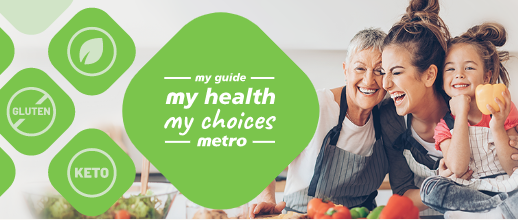
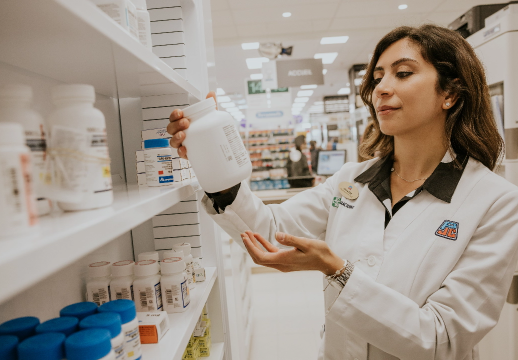
Our purpose to nourish the health and well-being of our communities is embodied in the essential front-line role pharmacists and their teams play in their communities in our vast network of 640 pharmacies. In January 2023, the Ontario pharmacists’ scope of practice was broadened, as it has been the case in Québec since 2020. These new professional acts facilitate accessibility to healthcare for patients within their communities.
For more details on our initiatives, see the 2023 Corporate Responsibility Report (PDF)
Our ambition is to optimize our packaging and printed materials by reducing their use, relying on optimal design, choosing environmentally responsible materials and facilitating their recovery and recycling. These practices aim to reduce the use of resources, limit product losses and diminish waste generation, while contributing to the fight against single-use plastic.
Objectives1
Note 1 : For more information, see our Packaging and Printed Materials Management Policy.
For information on our key performance indicators, see our 2022-2026 Corporate Responsibility Plan

Our ambition is to optimize our packaging and printed materials by reducing their use, relying on optimal design, choosing environmentally responsible materials and facilitating their recovery and recycling. These practices aim to reduce the use of resources use, limit product losses and diminish waste generation, while contributing to the fight against single-use plastic.
To learn more
Since the early 2010s, we have launched a range of initiatives to optimize our packaging and printed materials and reduce their environmental footprint.
With our Packaging and Printed Materials Management Policy (PDF), launched in 2019 and updated in 2022, we implemented measures to reduce the use of resources, limit product losses and generate less waste while contributing to the global movement to reduce single-use plastics. It guides the actions of our teams and suppliers in the effective management of our packaging and printed materials in all our activities.
Our Packaging and Printed Materials Management Policy is based on four principles:
Reduce at the source and avoid over-packaging
Encourage reuse
Reduce the mass or volume of packaging and printed materials
Use the right quantities of materials
Give preference to recycled materials
Use virgin materials from sustainable sources
Give preference to recyclable materials
Communicate instructions for recovery
2023 Highlights

In 2023, our efforts were focused on increasing the recycled content and recyclability of our plastic containers in the fresh products sections of our food stores. We started using only polystyrene trays that are made of more than 50% recycled content. We have also eliminated all coloured plastic containers and packaging, whether polystyrene or PET, and have started to remove hard-to-recycle plastics such as polystyrene and PVC.
We continue to reduce the environmental impact of our private brand packaging, by replacing several categories of packaging with recycled and recyclable materials or by increasing postconsumer materials in our packaging.
To support our private brand suppliers, we also offer a design guide and training module on sustainable packaging. In 2022, METRO made responsible packaging training mandatory every two years for all private brand food suppliers.
See the training module and the eco-design guide (PDF)
Our efforts aim to reduce the weight of paper used in our flyers in our food and pharmacy banners, and using more sustainable materials. Once again this year, we achieved our objective of reducing the weight of paper used in our flyers, reducing it by 12% compared to 2022. To achieve this, we have implemented several initiatives, including optimizing the distribution of our flyers across the territory.
For more details on our achievements, see the 2023 Corporate Responsibility Report